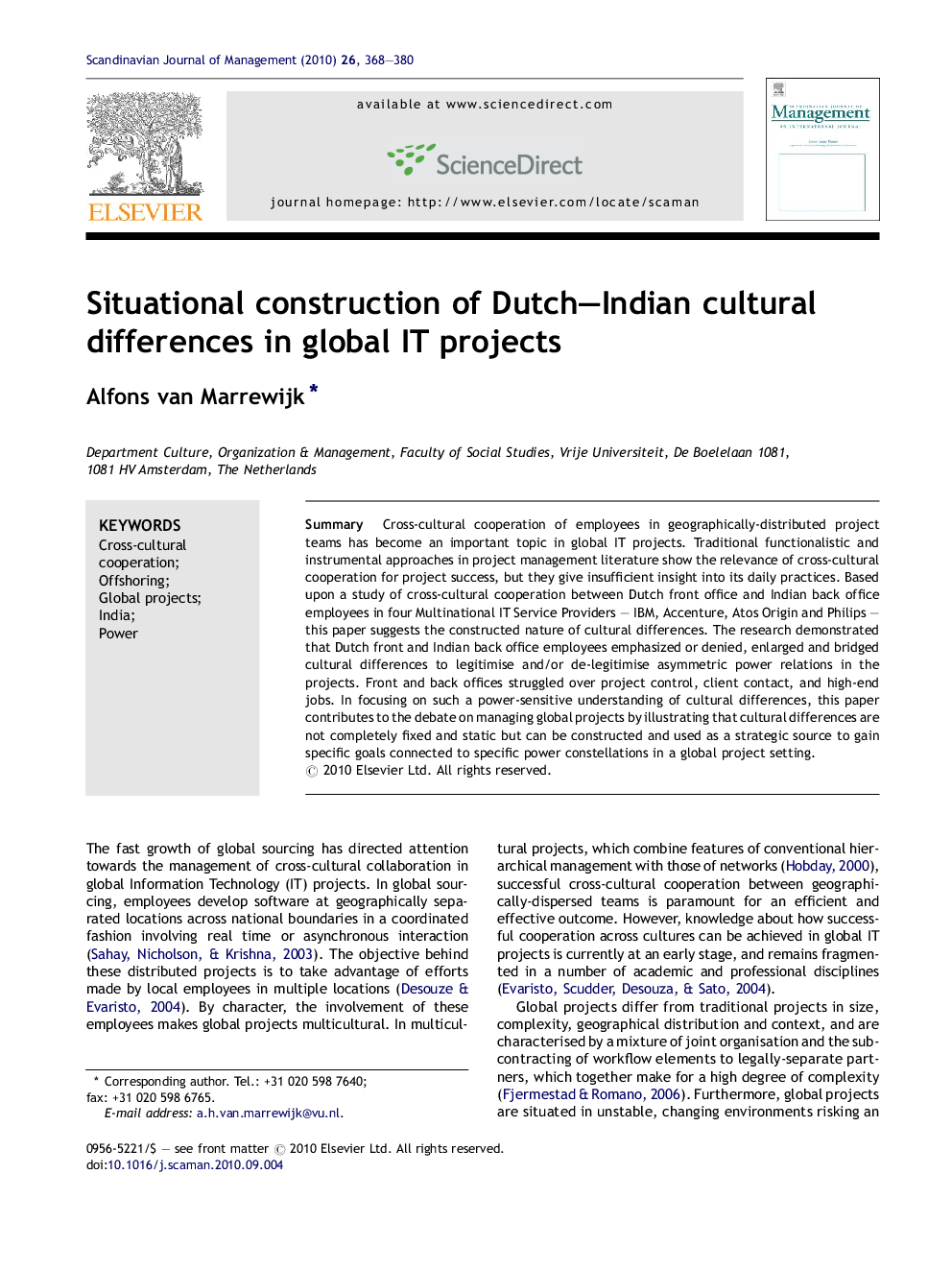| Article ID | Journal | Published Year | Pages | File Type |
|---|---|---|---|---|
| 896008 | Scandinavian Journal of Management | 2010 | 13 Pages |
SummaryCross-cultural cooperation of employees in geographically-distributed project teams has become an important topic in global IT projects. Traditional functionalistic and instrumental approaches in project management literature show the relevance of cross-cultural cooperation for project success, but they give insufficient insight into its daily practices. Based upon a study of cross-cultural cooperation between Dutch front office and Indian back office employees in four Multinational IT Service Providers – IBM, Accenture, Atos Origin and Philips – this paper suggests the constructed nature of cultural differences. The research demonstrated that Dutch front and Indian back office employees emphasized or denied, enlarged and bridged cultural differences to legitimise and/or de-legitimise asymmetric power relations in the projects. Front and back offices struggled over project control, client contact, and high-end jobs. In focusing on such a power-sensitive understanding of cultural differences, this paper contributes to the debate on managing global projects by illustrating that cultural differences are not completely fixed and static but can be constructed and used as a strategic source to gain specific goals connected to specific power constellations in a global project setting.
